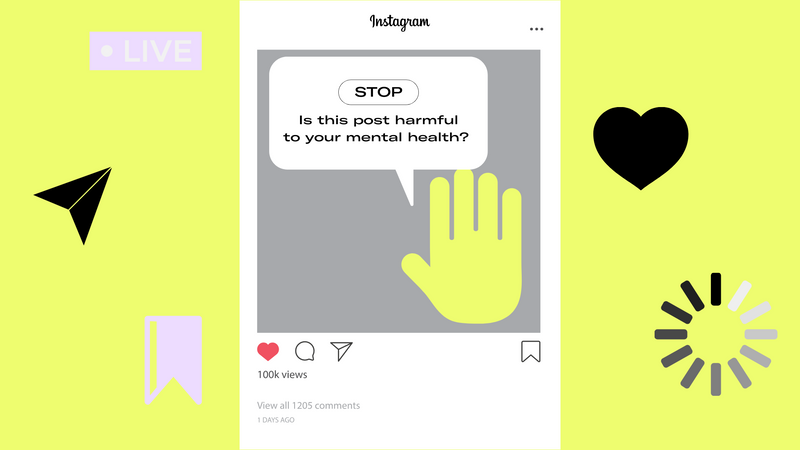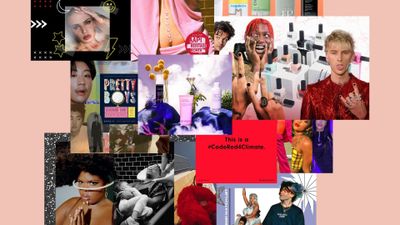Gen Z grew up in the spotlight of social media, but that doesn’t necessarily mean that we’re immune to its negative effects.
Research shows that there is a strong link between social media use and an increase in depression, anxiety, and overall worse mental health. In addition, it has been reported that more than 10 percent of teens are subject to bullying on social media.
SEE ALSO: TULA Skincare’s campaign challenges unrealistic beauty standards
But social media can also be fun and relatable, and establish connections and relationships. So how can we best use social media without letting it negatively impacting our mental health? Very Good Light talks to mental health experts to help Gen Zers find a balance.
The effects of the highlight reel
Dr. Rachel Goldman, Ph.D., FTOS, is a licensed psychologist, and clinical assistant professor at NYU School of Medicine. Dr. Goldman explains that it’s part of human behavior and our society to compare, but it doesn’t get us anywhere beneficial. She emphasizes the need to learn to control it.
She shares that often, her clients will wonder why they aren’t at the same level of success as someone on their Instagram feed, even though they’re doing the same things. But what they see that is making them feel like a failure is only half of the story. Similarly, edits and filters will slowly make people more conscious of their flaws, leading to lower self-confidence.
“The impact that social media has on our self-worth, body image, and self-esteem is what we need to be mindful of,” she says. “Especially now with all of the filters, it’s difficult to sometimes even know what is real and what is not.”
We are all different people on different journeys, so Dr. Goldman says that it’s not helpful to compare.
David Susman, Ph.D., is a clinical psychologist, mental health advocate, professor, and writer. He tells Very Good Light that some possible negative effects of social media on youth include increased anxiety and depression, poor sleep, body image distortions, cyberbullying, and fear of missing out (FOMO).
“Images on social media are often electronically enhanced to make people look better, and they often reflect ‘highlights’ from a person’s life and not mundane, everyday reality,” says Dr. Susman. “Try not to compare yourself with others.”
Stay aware
One of the most important parts of protecting yourself from social media is to be self-aware. Dr. Goldman says that when you are already in a vulnerable state or feeling bad about yourself, you can be negatively impacted even more. Remember that you are in control, and you alone have the power to make social media work in your favor.
Dr. Goldman recommends pausing, examining the evidence of whatever negative thought you may be having, and practicing self-love, being present and mindful, and gratitude.
“Of course, you can also block, mute, or unfollow any accounts that make you feel bad about yourself or question yourself,” she says. “Create and build a social media feed that inspires you and makes you feel good.”
A Safe Place Inside Your Head is a non-profit community outreach organization created to bring self-awareness through social media channels and improve the mental health of its users. Their mission is to create ‘a safe place’ on these social channels where others can engage about mental health without any stigma or judgment.
The organization was founded by Tanner Hamilton, with his mom, Joanne, and aunt, AnnMarie, in 2018. They wanted to share messages with others who struggle with mental health issues on a daily basis.
“We wanted to meet people in their emotions and help them not feel so alone,” Tanner said. Additionally, a big part of what they do is work to fight for legislation for free mental healthcare. “Everyone deserves help, no matter your financial status,” says Tanner.
Limit your screen time
“As long as you set boundaries, social media can have a positive impact on your life. If no boundaries are set, it can also be extremely toxic,” Tanner says. It can be as simple as unfollowing accounts that do not serve you, and do not be afraid to block people when you need to, he advises.
Setting boundaries can be helpful, but according to Dr. Goldman, it’s equally important to recognize why you need those limits in the first place.
“You need to take care of you,” she says. “And if social media is not making you feel good, then it is time to think about what you can change.”
She advises asking yourself what purpose social media is serving you and how it makes you feel.
“Once you can answer that question, you can then determine if you need to set additional boundaries or limits on your use and/or ‘clean up’ your feed a bit… Follow people and accounts that make you feel good and inspire you. Know that it is okay to have a break.”
Tanner advises to be mindful of screen time, and specifically scrolling time. I personally love the ‘Screen Time’ tool in the iPhone settings, and have been using it for almost a year. If you have an updated iPhone, you have the ability to set ‘Downtime’ on your apps to take a specific hour or time of the day off of certain apps, and also set limits so that you only spend a certain amount of time per day on any given app.
“It’s important when to know to put your phone down and to walk away,” says Tanner. “Also, don’t compare yourself to anyone on social media. Comparison is the thief of joy.”
Embrace the positive opportunities of social media
Because of profiles like A Safe Place Inside Your Head, social media can provide a safe place for people to go to feel less alone, says Tanner.
“I think as long as you follow or have a feed that suits your needs, it can be an extremely positive and safe place for you,” he says. “Being a part of a community that helps you not feel alone is a major key.”
Dr. Goldman speaks about how connected people are to their phones and social media, which can have both positive and negative impacts. Additionally, social media allows for a connection between us and others to be established. This past year has been a perfect example.
“Social media also allows us to find similar people, perhaps people struggling with similar issues, and feel supported or connected, when perhaps we don’t have that at home,” says Dr. Goldman. “Further, there are a lot of experts on social media that are providing valuable information… You just need to be aware of who you are getting the information from.”
Dr. Susman similarly emphasizes that some potential positive effects include gaining access to expert health information, obtaining emotional support and community building, having a forum for self-expression, and for making, maintaining and building relationships.
“Make your social media use work for you,” Dr. Goldman says. Social media is powerful, but it can only hold a negative impact if you allow it to. Remember that you are in control of your own screen (and every other aspect of your life, as well).






